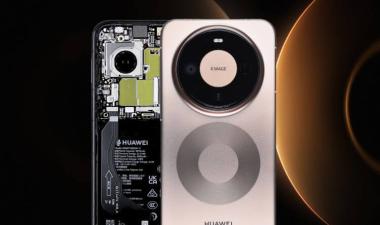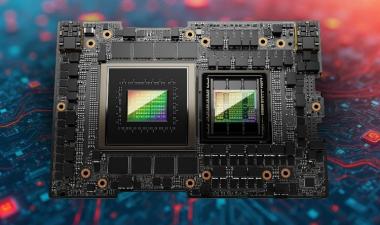Nvidia Slips out Grace Details
Nvidia disclosed more details of its Grace processor, which can combine with its Hopper GPU or run by itself in servers. Now due in 2H23, the Arm-compatible chip is more efficient than Intel’s flagship Xeon.

Linley Gwennap
In a new white paper, Nvidia disclosed additional technical details of its Arm-compatible Grace processor, including a 500W TDP rating for a module containing two processors and 1 TB of memory. Grace is now sampling, and the company expects initial systems to ship in 2H23, about six months later than previously planned.
The company’s first server-class processor, Grace contains 72 CPUs based on Neoverse V2, Arm’s most powerful design, running at up to 3.1 GHz. Paired with the CPUs is a large 117 MB cache backed by a unique low-power memory subsystem. The product comes in two modules (so-called super¬chips): the Grace module combines two processors with 960 GB of DRAM, while the Grace Hopper module has one Grace processor and an unspecified Hopper GPU, each with its own memory subsystem.
Nvidia designed the processor mainly for the latter configuration, which accelerates the performance of AI models that exceed the GPU’s 96 GB of High Bandwidth Memory (HBM) but fit into the processor’s 512 GB of DRAM. In this case, Grace feeds data to the GPU through a high-bandwidth chip-to-chip interface, avoiding the delay of loading it through slower board-to-board links.
But Grace can also act as the main processor in a server, promising more performance per watt than leading x86 chips. HP Enterprise, along with several major Taiwanese ODMs, plan to offer Grace-based servers, although Nvidia will continue to feature x86 host processors in its DGX systems.
Free Newsletter
Get the latest analysis of new developments in semiconductor market and research analysis.
Subscribers can view the full article in the TechInsights Platform.
You must be a subscriber to access the Manufacturing Analysis reports & services.
If you are not a subscriber, you should be! Enter your email below to contact us about access.









